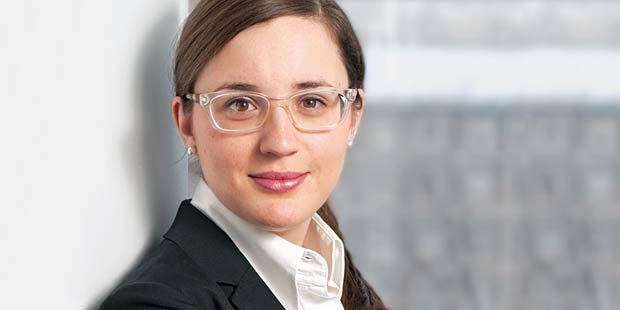Across Borders, Whose Law Applies?
Printer Friendly VersionAt the intersection of private international law and legal and political philosophy is the question of how courts can legitimately apply a foreign law domestically. If two Canadian citizens were married in Canada, then came before a New York court as residents in a marital dispute, would New York or Canadian law apply? “It’s such a fundamental part of our legal system that happens in these really boring examples all the time, and yet it’s really under-studied from a theoretical point of view,” says Joanna Langille ’11. “It also raises a problem of prior accounts that political theory has tried to give for legal authority.”
Langille, who is pursuing this inquiry in her doctorate at the University of Toronto’s Faculty of Law, is one of 14 recipients of a 2014 Trudeau Foundation Scholarship, the most prestigious award of its kind in Canada. This marks the third Trudeau Scholarship given to an NYU Law graduate in as many years; previous recipients include Lisa Kerr LLM ’09, JSD ’13 and Emily Kidd White LLM ’09, JSD ’15.
This scholarly undertaking allows Langille to combine her impressive background in philosophy, political science, international relations, and the law. Before receiving her JD from NYU Law, Langille studied philosophy and political science as an undergraduate at the University of Toronto and received an MPhil in international relations as a Commonwealth Scholar at the University of Oxford.
Langille will return to NYU Law in Fall 2014 as a Furman Academic Fellow. “Jo is an incredibly astute and hardworking person with broad intellectual interests,” says Barry Friedman, Jacob D. Fuchsberg Professor of Law and faculty director of the Furman Fellows program. “I’m thrilled to welcome her back to NYU next year as a Furman Fellow.”
—

